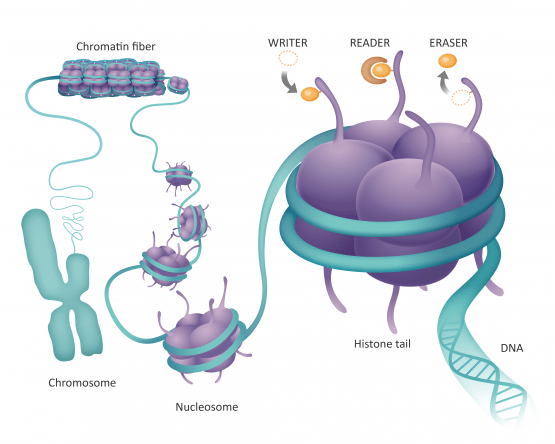Epigenetics
Epigenetics refers to functionally relevant changes to the genome that do not involve changes in DNA sequence. Epigenetic switches occur in normal biological or disease processes or as a consequence of diet and other external environmental factors; and they induce changes in gene and protein expression. The form and function of every cell in the human body is determined by the genes and proteins it expresses and also by the signals it receives from the surrounding cells. Regulation of gene transcription and translation are therefore key biological determinants for cellular differentiation and function, and transcriptional imbalances play a significant role in a number of human diseases.
Every human cell contains about two meters of DNA organized into chromosomes. To allow for easy packing and unpacking, the DNA is wound around specialized proteins called histones to form nucleosomes. The nucleosomes in turn are organized into chromatin fibers that make up the chromosomes.
In 2001, Jenuwein and Allis proposed that modifications of the amino-terminal histone tails function as a "histone code", acting as a fundamental regulatory mechanism to control the conformational transition between transcriptionally active and inactive states of chromatin.
